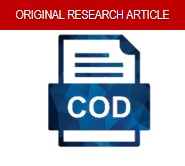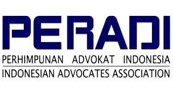Harmonization in the Process of Formation of Regional Regulations in Indonesia
DOI:
https://doi.org/10.46924/jihk.v4i1.149Keywords:
Disharmonization of Legislation, Regional and Central Regulations, Good Governance.Abstract
The regional authority to regulate their household affairs through Regional Regulations (Perda) raises its own problems when it is associated with harmonization of the higher laws and regulations that are parallel and often even contradict the laws. This is often an obstacle in national development within the framework of the unitary state, the weak supervision of the central government in the process of forming a regional regulation is an indicator of overlap between regional and central regulations. Factors causing legal disharmony in the formation of regional regulations can derive from internal and external institutions forming regional regulations, as the countermeasures can be carried out internally and externally. These countermeasures are the responsibility of all levels of state government, both by the provincial central government, so that the purpose of establishing good and correct regional regulations in accordance with laws and regulations and the needs of local communities can be implemented.
Downloads
References
Jurnal
Andrea, Danetta Leoni. “Penyelenggaraan Otonomi Daerah Bidang Pendidikan Berdasarkan Undang-Undang Nomor 23 Tahun 2014 Tentang Pemerintahan Daerah.” Jurnal Ilmu Hukum Kyadiren 1, no. 2 (2020): 157–65. https://doi.org/10.46924/jihk.v1i2.128.
Dasem, Nikolas. “Wewenang Satuan Polisi Pamong Praja Dalam Penegakan Praturan Daerah.” Jurnal Ilmu Hukum Kyadiren 2, no. 2 (2021): 136–45. https://doi.org/10.46924/jihk.v2i2.140.
Hartomo, Wahyu Tri. “Implikasi Putusan Mahkamah Konstitusi No.137/PUU- XIII/2015 Dan Putusan No. 56/PUU-XIV/2016 Tentang Pembatalan Perda Provinsi, Perda Kabupaten/Kota, Peraturan Gubernur, Dan Peraturan Bupati/Peraturan Walikota.” Jurnal Legislasi Indonesia 15, no. 2 (2018): 26–39. https://doi.org/10.54629/jli.v15i2.180.
Jayuska, Rizki, and Ismail Marzuki. “Problematika Pembentukan Peraturan Daerah Oleh Pemerintah Daerah Provinsi Kalimantan Tengah Periode 2016-2021.” Pagaruyunga Law Journal 4, no. 2 (2021): 149–67. https://doi.org/10.31869/plj.v4i2.2464.
Khalimy, Akhmad. “Pencabutan Peraturan Daerah Dalam Timbangan Negara Hukum.” Jurnal Kajian Hukum Islam 2, no. 1 (2017): 30–42. http://dx.doi.org/10.24235/mahkamah.v2i1.1617.
Krisnawati, Eva. “Menguatnya Pembentukan Perda Adat Pada Program Pembentukan Peraturan Daerah.” Jurnal Legislasi Indonesia 14, no. 2 (2017): 223–32. https://doi.org/10.54629/jli.v14i2.135.
Lobubun, Muslim, Yohanis Anthon Raharusun, and Iryana Anwar. “Inkonsistensi Peraturan Perundang-Undangan Dalam Penyelenggaraan Pemerintahan Daerah Di Indonesia.” Jurnal Pembangunan Hukum Indonesia 4, no. 2 (2022): 294–322. https://doi.org/10.14710/jphi.v4i2.294-322.
Pangemanan, Michael. “Urgensi Program Pembentukan PERDA (Propemperda) Sebagai Instrument Perencanaan Dalam Mengarahkan Dan Mendorong Pembentukan Peraturan Daerah.” Lex Privatum 4, no. 8 (2016): 24–33. https://ejournal.unsrat.ac.id/index.php/lexprivatum/article/view/14180.
Rohman, Abdul. “Politik Birokrasi Pengangkatan Dan Pemberhentian Perangkat Desa Pasca Pilkades.” Indonesia Governance Journal: Kajian Politik-Pemerintahan 3, no. 2 (2020): 127–38. https://doi.org/10.24905/igj.v3i2.1571.
Siregar, Syulhennisari, and Iqbal Tanjung. “Faktor-Faktor Yang Mempengaruhi Pembuatan Peraturan Daerah Berdasarkan Hak Inisiatif Dewan Perwakilan Rakyat Daerah Di Kabupaten Padang Lawas Utara.” Jurnal Ilmiah Muqoddimah: Jurnal Ilmu Sosial, Politik & Humaniora 2, no. 2 (2018): 76–87. http://dx.doi.org/10.31604/jim.v2i2.2018.76-87.
Sopyana, Jihan, Salsa Aulia Ratar Putri, and Siti Dewi Ratnasari. “Pencabutan Peraturan Daerah Oleh Pemerintah Pusat.” Jurnal Rechten: Riset Hukum Dan Hak Asasi Manusia 3, no. 2 (2021): 15–21. https://doi.org/10.52005/rechten.v3i2.84.
Suharyo, Suharyo. “Pembentukan Peraturan Daerah Dan Penerapan Sanksi Pidana Serta Problematikanya.” Jurnal Rechts Vinnding: Media Pembinaan Hukum Nasional 4, no. 3 (2015): 431–47. http://dx.doi.org/10.33331/rechtsvinding.v4i3.15.
Supusepa, Devi. “Penerapan Asas-Asas Penyelenggaraan Pemerintahan Yang Baik Ditinjau Dari Undang-Undang Nomor 32 Tahun 2004.” Jurnal Ilmu Hukum Kyadiren 2, no. 1 (2020): 12–29. https://doi.org/10.46924/jihk.v2i1.130.
Telaumbanua, Dalinama. “Pembentukan Peraturan Daerah Kabupaten & Kota.” Jurnal Education and Development 4, no. 1 (2018): 96–103. https://doi.org/10.37081/ed.v4i1.279.
Tuhumena, Callychya Juanita Raisha. “Partisipasi Masyarakat Dalam Pembentukan Undang-Undang.” TATOHI: Jurnal Ilmu Hukum 1, no. 3 (2021): 248–56. https://fhukum.unpatti.ac.id/jurnal/tatohi/article/view/575.
Yuswanto, Yuswanto, and Muhammad Yasin Al Arif. “Diskursus Pembatalan Peraturan Daerah Pasca Putusan MK No. 137/PUU-XIII/2015 Dan No. 56/PUU-XIV/2016.” Jurnall Konstitusi 15, no. 4 (2018): 710–31. https://doi.org/10.31078/jk1542.
Buku
Ansori, Lutfi. Legal Drafting: Teori Dan Praktik Penyusunan Peraturan Perundang-Undangan. Depok: Rajawali Pers, 2019.
Anthon, Raharusun. Desentralisasi Asimetrik Dalam Negara Kesatuan Republik Indonesia. 1st ed. Yogyakarta: Genta Publishing, 2014.
Lobubun, Muslim. Hukum Pengelolaan Sumber Daya Alam: Studi Terhadap Sumber Daya Alam Tambang Dan Hutan Papua. Yogyakarta: Litera, 2019.
MacDermot, Niall. Indonesia Dan Aturan Hukumnya: Dua Puluh Tahun Rezim Orde Baru. Edited by Muslim Lobubun and Iryana Anwar. Translated by Muhammad Fahruddin Aziz and Herlandri Eka Jayaputri. Biak: Yayasan Kyadiren, 2022.
Sukardi, Sukardi. Pengawasan Dan Pembatalan Peraturan Daerah. Yogyakarta: Gentha Publishing, 2016.
Sulaiman, King Faisal. Teori Peraturan Perundang-Undangan Dan Aspek Pengujiannya. 1st ed. Yogyakarta: Thafa Media, 2017.
Downloads
Published
Issue
Section
License
Authors who publish with this journal agree to the following terms:
- Copyright on any article is retained by the author(s).
- The author grants the journal, the right of first publication with the work simultaneously licensed under a Creative Commons Attribution License that allows others to share the work with an acknowledgment of the work’s authorship and initial publication in this journal.
- Authors are able to enter into separate, additional contractual arrangements for the non-exclusive distribution of the journal’s published version of the work (e.g., post it to an institutional repository or publish it in a book), with an acknowledgment of its initial publication in this journal.
- Authors are permitted and encouraged to post their work online (e.g., in institutional repositories or on their website) prior to and during the submission process, as it can lead to productive exchanges, as well as earlier and greater citation of published work.
- The article and any associated published material is distributed under the Creative Commons Attribution 4.0 International License




 Sinta ID:
Sinta ID: 


















